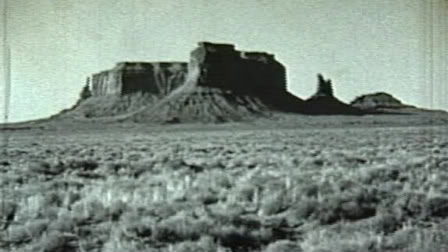This defense of what I consider Robert Altman’s most neglected major work appeared in the May 8, 1998 issue of the Chicago Reader. I’ve deliberately refrained from including any stills from Kansas City — its “parent” film, which I continue to dislike. — J.R.

Jazz ’34: Remembrances of Kansas City Swing
Rating *** A must see
Directed by Robert Altman
With Jesse Davis, David “Fathead” Newman, Ron Carter, Christian McBride, Tyrone Clark, Don Byron, Russell Malone, Mark Whitfield, Victor Lewis, Geri Allen, Cyrus Chestnut, James Carter, Craig Handy, David Murray, Joshua Redman, Curtis Fowles, Clark Gayton, Olu Dara, Nicholas Payton, James Zollar, and Kevin Mahogany.
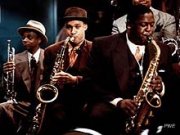
The best Robert Altman feature in more years than I care to remember isn’t playing at a theater anywhere. A shortened version aired on PBS’s “Great Performances” series last year, but the movie only recently came to my attention when a video copy (distributed by Rhapsody Films) arrived in the mail. A fascinating adjunct to Altman’s much more ambitious and much less successful Kansas City (1996), Jazz ’34: Remembrances of Kansas City Swing is one of the best jazz films I’ve ever seen. It’s what its parent film promised but failed to deliver — all the more interesting because it’s neither a documentary nor a narrative but an eccentric hybrid. Read more
From Sight and Sound (Spring 1975); I’ve mainly followed the editorial changes (mostly trims) used in the version that appears in my collection Essential Cinema….My apologies for the format problems with this piece, only some of which I’ve managed to resolve satisfactorily. — J.R.
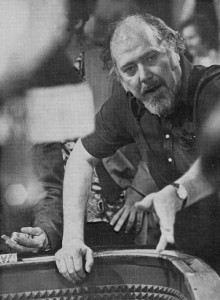
[. . .] Unless it is claimed that a pianist’s hands move haphazardly up and down the keyboard — and no one would be willing to claim this seriously — it must be admitted that there exists a guiding thought, conscious or subconscious, behind the succession of organized sound patterns . . . Of course, it does happen, and not too infrequently, that an instrumentalist’s fingers ‘recite’ a lesson they have learned; but in such cases there is no reason to talk about creation.
— André Hodeir, Jazz: Its Evolution and Essence
I can never think and play at the same time. It’s emotionally impossible.
— Lennie Tristano, circa 1962
CHARLIE (Elliott Gould): This is the truth. You’re an animal lover, right?/ SUSAN (Gwen Welles): Yeah./CHARLIE: Okay, well: the great blue whale, right? You know about a great blue whale?/ SUSAN (semi-audible): . . . got that wrestling guy, hunh? /CHARLIE: No, it’s a big fish, a big fish, there’s only two or three left in the world. Read more
From Monthly Film Bulletin, August 1975, Vol. 42, No. 499. — J.R.
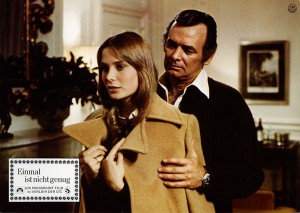
Jacqueline Susann’s Once is Not Enough
U. S.A., 1974Director: Guy Green
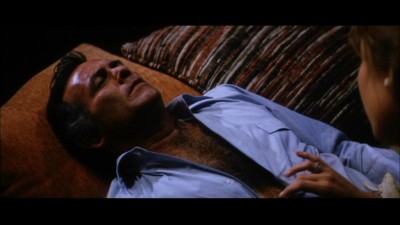
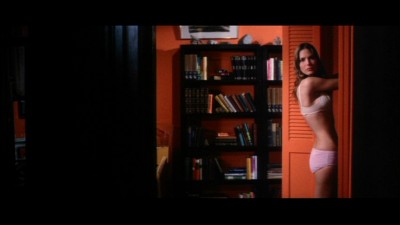
Cert--AA. dist–CIC. p.c–Paramount Pictures. In association with
Sujac Productions and Aries Films. exec. p–Irving Mansfield. p–Howard
W. Koch. p. manager–Howard W. Koch Jnr. asst. d–Howard W. Koch
Jnr., Lee Rafner. sc–Julius J. Epstein. Based on the novel Once Is Not
Enough by Jacqueline Susann. ph–John A. Alonzo. Panavision. col—
Movielab. ed–Rita Roland. p. designer--John DeCuir. a.d–David
Marshall. setdec–Ruby Levitt. m–Henry Mancini. songs—“Once Is
Not Enough” by Henry Mancini, Larry Kusik, sung by–The Mancni
Singers; “All the wav” by Sammy Cahn, James van Heusen, sung by
Frank Sinatra. titles–Dan Perri. sd. ed–Robert Cornett. sd. rec–Larry
Jost. sd. re-rec–Doc Wilkinson. l.p–Kirk Douglas (Mike Wayne),
Alexis Smith (Deidre Milford Granger), David Janssen (Tom Colt),
George Hamilton (David Milford), Melina Mercouri (Karla), Gary
Conway (Hugh Robertson), Brenda Vaccaro (Linda Riggs), Deborah
Raffin, (January Wayne), Lillian Randolph (Mabel), Renata Vanni (Maria),
Mark Roberts (Rhinegold), John Roper (Franco), Leonard Sachs (Dr. Read more
From the Chicago Reader (October 29, 1987). — J.R.
I. Good Things About the Chicago Film Festival
1. Quite apart from aesthetic considerations, any film festival that can boast films from 35 countries and encompass 70 years of filmmaking is performing an invaluable cultural service. The xenophobic and antihistorical cast of most pop culture in this country is such that the more the media expand, the narrower our sense of reality generally becomes, and any institution that can allow us glimpses of cultures and eras other than our own is bound to teach us something more than the average TV news broadcast. (The sharp moral distinction that we usually make between news and fiction–designating the first as “serious” and the second as “entertainment”–overlooks the fact that both are usually designed as narrative entertainment, offering consumable, hence disposable, stories with larger-than-life characters.)
2. Out of the 20 films in the festival that I’ve so far managed to see, more than half are eminently worth seeing, and roughly a third qualify as first-rate. If that’s a somewhat lower batting average than either Facets or the Film Center, it’s still a much higher one than what is achieved by the usual run of commercial mainstream releases. Read more
From the Chicago Reader (March 15, 1996). — J.R.
Deseret

Directed and written byJames Benning
Narrated by Fred Gardner.
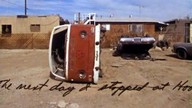
Andre Gide’s The Counterfeiters is too tremendous a thing for praises. To say of it “Here is a magnificent novel” is rather like gazing into the Grand Canyon and remarking, “Well, well, well; quite a slice.”
Doubtless you have heard that this book is not pleasant. Neither is the Atlantic Ocean. — Dorothy Parker
One of the main characteristics of experimental films is that they tend to make hash of the terms we use to speak about narrative features, and James Benning’s haunting, beautiful, and awesome Deseret (1995) — his eighth feature-length film — performs this valuable function from the outset. To say that Deseret is “directed” and “written” by Benning requires some bending of the categories. He “directed” it insofar as he conceived the project, filmed the images, recorded the sound, and edited the sound and images; he “wrote” it insofar as he compiled and edited the texts that are read offscreen by Fred Gardner, though he didn’t write them. In a Hollywood film the directorial tasks described above would be carried out by a producer, cinematographer, sound recordist, editor, and sound editor; it’s anybody’s guess what the compiler and editor of the text would be called (researcher? Read more









